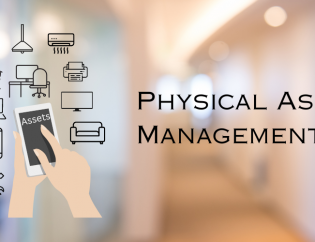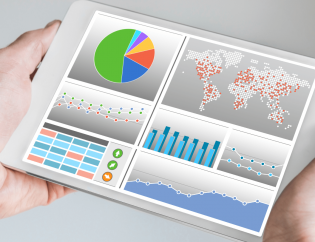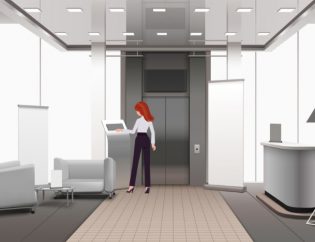
Making Smart, Long-Term Decisions
Investing in a visitor management system (VMS) is a crucial decision that goes beyond simply tracking visitor entries. A well-chosen VMS enhances security, streamlines operations, and delivers long-term benefits for your organization.
In this blog, we explore the key long-term advantages of a visitor management system and what organizations should consider when selecting one. By focusing on these strategic factors, you can ensure your system not only meets your immediate security and operational needs but also supports future growth and efficiency.
Universal Accessibility
A truly effective visitor management system (VMS) should be accessible to all users, ensuring a seamless experience for everyone.
VersionX products are built with an inclusive design, making them easy to use from day one with little to no training. Our VMS incorporates advanced technologies like facial recognition, QR codes, and screen readers, enhancing accessibility for a diverse range of users. Additionally, integration with access control systems simplifies navigation, making the system more efficient and user-friendly.
Mobility
A modern visitor management system (VMS) must offer mobility, allowing users to access and manage visitor data from anywhere using smartphones, tablets, or laptops.
Mobility is essential for supporting flexible work environments, enabling seamless connectivity and productivity on the go. Additionally, multi-location capabilities ensure a unified experience—VersionX VMS, for example, recognizes individuals across different office locations, streamlining visitor management across multiple sites.
Cross-Platform Compatibility
A robust visitor management system (VMS) should function seamlessly across multiple platforms, including iOS, Android, and desktop environments. Users must be able to access and operate the system effortlessly, whether they are using computers, tablets, or smartphones, regardless of the operating system.
A cross-platform VMS is typically web-based and also offers dedicated mobile applications, ensuring easy visitor management on the go. Consistency in design and functionality across all devices enhances user experience, making navigation and operations intuitive and efficient.
Offline Functionality
VersionX VersionX visitor management system is designed to function seamlessly even in low or no-connectivity environments. With built-in offline capabilities, users can access essential features without interruption, ensuring smooth operations regardless of network availability. This ensures that visitor management remains efficient and reliable, even in connectivity-challenged locations.
Scalability
A scalable visitor management system is essential for organizations that anticipate growth and evolving security needs. Scalability ensures that the system can handle increasing data volumes and expand capacity without compromising performance.
A well-designed VMS should support both horizontal scaling—adding more machines or nodes—and vertical scaling—enhancing the capabilities of existing resources. This adaptability makes the system cost-effective, future-proof, and efficient in dynamic work environments.
Strengthening Security
Security is a critical factor in maintaining user trust and safeguarding against unauthorized access or cyber threats. A well-designed visitor management system should include robust security measures to protect visitor data, ensure system integrity, and secure network communications.
When selecting a VMS, organizations should prioritize solutions that offer advanced security features, ensuring seamless protection against potential vulnerabilities.
Multi-Factor Authentication (MFA)
Multi-factor authentication (MFA) is a critical security feature in modern visitor management systems, adding multiple layers of protection to access control and sensitive data.
By requiring users to verify their identity through a combination of authentication methods—such as passwords, biometrics, and one-time codes—MFA significantly reduces the risk of unauthorized access and strengthens overall security.
Future-Proof Technology: Ensuring Long-Term Relevance
A future-proof visitor management system is designed to adapt to evolving technological advancements, ensuring long-term usability and efficiency.
By anticipating future trends and integrating scalable, flexible technologies, organizations can avoid system obsolescence and ensure seamless adaptability to emerging innovations.
Choosing a visitor management system with a forward-thinking approach guarantees that the technology remains relevant and continues to meet security and operational needs for years to come.
Interoperability: Seamless Integration for Future-Ready Systems
A robust visitor management system should be designed for seamless integration with other technologies, ensuring compatibility with both existing and future innovations.
It should effortlessly connect with access control systems, facial recognition, and other security or administrative solutions, creating a unified and efficient operational framework.
By prioritizing interoperability, organizations can enhance security, streamline workflows, and future-proof their visitor management processes.
Predictive Analytics: Data-Driven Insights for Proactive Security
A visitor management system should leverage data analytics to identify trends and anticipate visitor needs. This capability empowers admin and security teams to make informed decisions, enhancing safety and operational efficiency.
By analyzing visitor patterns, the system can enable proactive adjustments, improving security measures and optimizing the overall visitor experience.
Compliance with Regulations: Safeguarding Visitor Data
A Visitor Management System must comply with data protection laws and regulations to uphold visitor privacy and confidentiality. Ensuring adherence to legal requirements minimizes risks and reinforces trust in the system.
Transparent communication about how visitor data is collected, processed, and stored fosters confidence among stakeholders and strengthens compliance efforts.
---
By keeping these factors in mind, organizations can implement a robust and future-ready visitor management system. A well-designed system enhances accessibility while seamlessly adapting to evolving technological advancements and operational needs.









